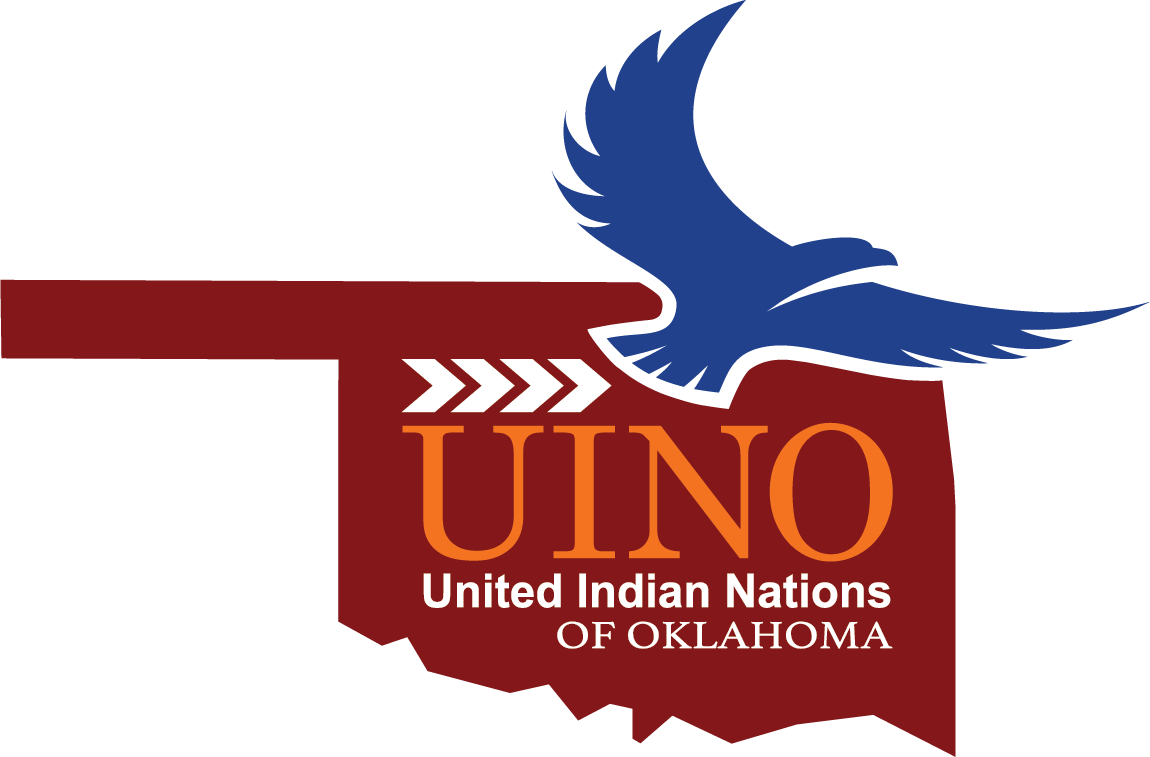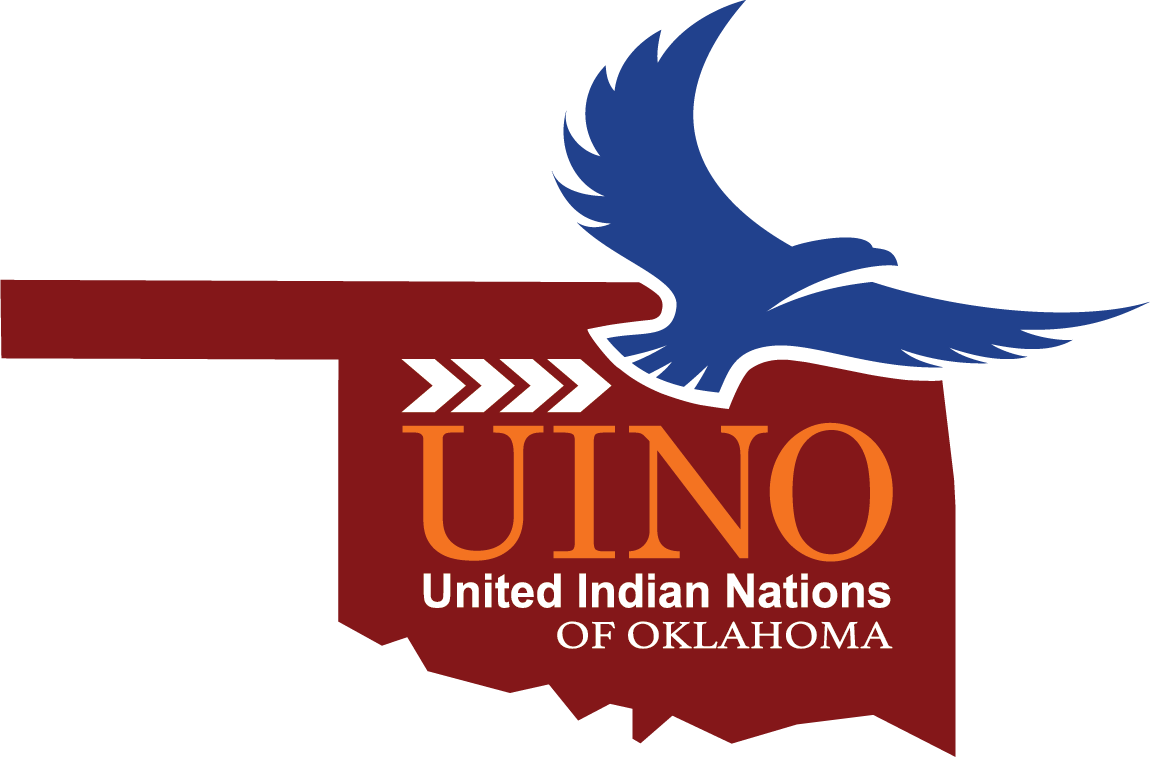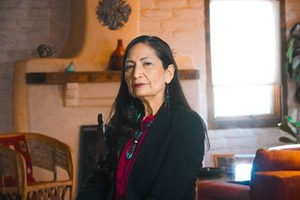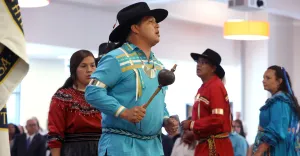
OKLAHOMA CITY — United Indian Nations of Oklahoma (UINO) is calling on all Oklahomans to contact their state lawmakers and urge them to override Governor Kevin Stitt's May 5 veto of House Bill 1137, legislation written to remove barriers preventing critical state funding for the investigation of Missing and Murdered Indigenous People (MMIP).
Gov. Stitt originally signed Ida's Law in 2021, but it required the Oklahoma State Bureau of Investigation (OSBI) to first obtain federal funding before fully establishing a liaison office dedicated to MMIP cases.
HB 1137, authored by Choctaw Nation citizen Ronald Stewart (D-Tulsa), amended Ida's Law, which passed overwhelmingly in the Oklahoma House (83–0) and Senate (42–1) with broad, rare bipartisan support. Stewart's bill amended Ida's Law to remove the federal funding requirement and, along with the near-unanimous support in both chambers, had the support of Tribal nations, law enforcement, and advocacy groups across the state.
"The Legislature did its job. They passed a common-sense solution backed by Tribes, law enforcement, and both political parties, and we're grateful for their overwhelming support," said Margo Gray, Executive Director of United Indian Nations of Oklahoma. "The Governor's veto, however, is a blatant denial of justice and a slap in the face to Native families who deserve answers. We urge all Oklahomans to contact their lawmakers and ask them to take the extraordinary but necessary step of overriding Gov. Stitt's veto."
Ida's Law was named for Ida Beard, a citizen of the Cheyenne and Arapaho Tribes and mother of four who went missing from El Reno nearly ten years ago in June of 2015. She has never been found.
Oklahoma ranks second in the nation for MMIP cases, with 690 unresolved cases involving Native people as of January 2025, including 181 in Tulsa alone — the ninth-highest number among American cities. Native women and girls are particularly vulnerable, with homicide listed as the third leading cause of death for Native women aged 15–24.
"Three major interstates intersect in Oklahoma, which makes us ground zero for crimes that prey on vulnerable people," Gray said. "Other states experiencing this same epidemic of Missing and Murdered Indigenous People have already properly enacted similar laws that strengthen coordination. By vetoing HB 1137, Gov. Stitt fails all Oklahomans by making our state the weak link. We strongly encourage the legislature to override this veto and stop the tragic loss of life."
Two OSBI special agents, Cherokee Nation citizens Dale Fine and Josh Patzkowski, currently investigate MMIP cases without a designated office or much-needed infrastructure. Despite the legislature's clear intent, the requirement for OSBI to first secure federal funds presents challenges that hinder investigating and solving MMIP cases. Despite the obstacles, agents continue their work with what they call a "patchwork system," collaborating with local law enforcement, volunteer groups, and families. Agents and supporters of the bill have been clear that more support and structure are needed.
According to the U.S. Department of the Interior, one of the most significant barriers to solving these cases is a lack of collaboration and resources among law enforcement agencies, precisely what the Office of Liaison for MMIP was designed to fix. However, without funding the office, this epidemic continues to go unchecked.
The White House's proposed 2026 budget includes a $107 million cut to the Bureau of Indian Affairs' public safety and justice programs, including the federal Missing and Murdered Unit. Relying solely on federal funding is no longer realistic or responsible.
"Oklahoma is ground zero for the MMIP crisis, and with federal budget cuts, vetoing this amendment to Ida's Law essentially kills efforts to investigate and solve these cases," said Ben Barnes, Chairperson of United Indian Nations of Oklahoma. "Gov. Stitt says creating this office, which was originally established by a law he signed in 2021, prioritizes cases based on race and sends the message that some lives are more worthy of attention than others. His veto of this bi-partisan, common sense law to achieve justice for victims and their families proves which lives are unworthy to him."
Editorial boards at The Oklahoman and Tulsa World have joined tribal leaders, UINO, intertribal councils, and other groups in urging an override of the veto. UINO urges Oklahomans to take immediate action by raising their voices to ensure the state does not walk away from its duty to protect citizens and address this crisis.
Action items for Oklahomans:
Find your Oklahoma State Representative and State Senator here.
Email or call your legislator's office and politely ask them to override Gov. Stitt's veto of HB 1137, which received broad, bipartisan support.
Thank them for their attention to this important matter that will help bring justice to hundreds of victims and their families.
For sample letters to view or edit, click here.







